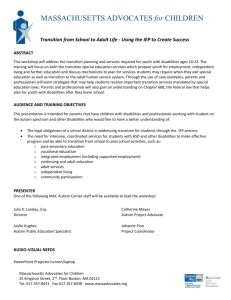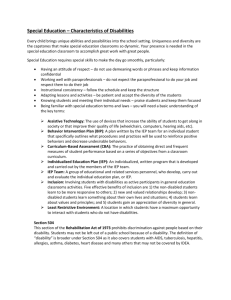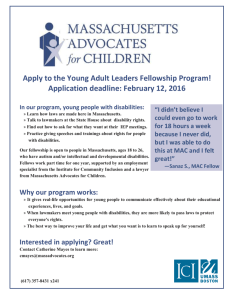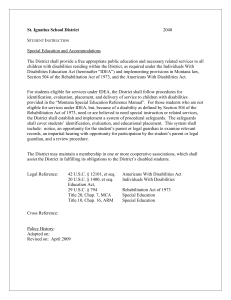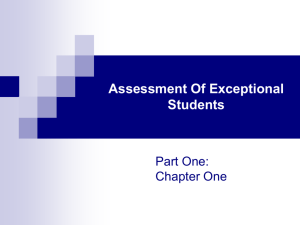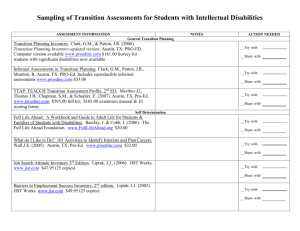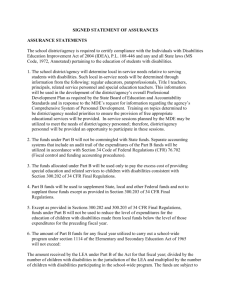Right to a Quality Education
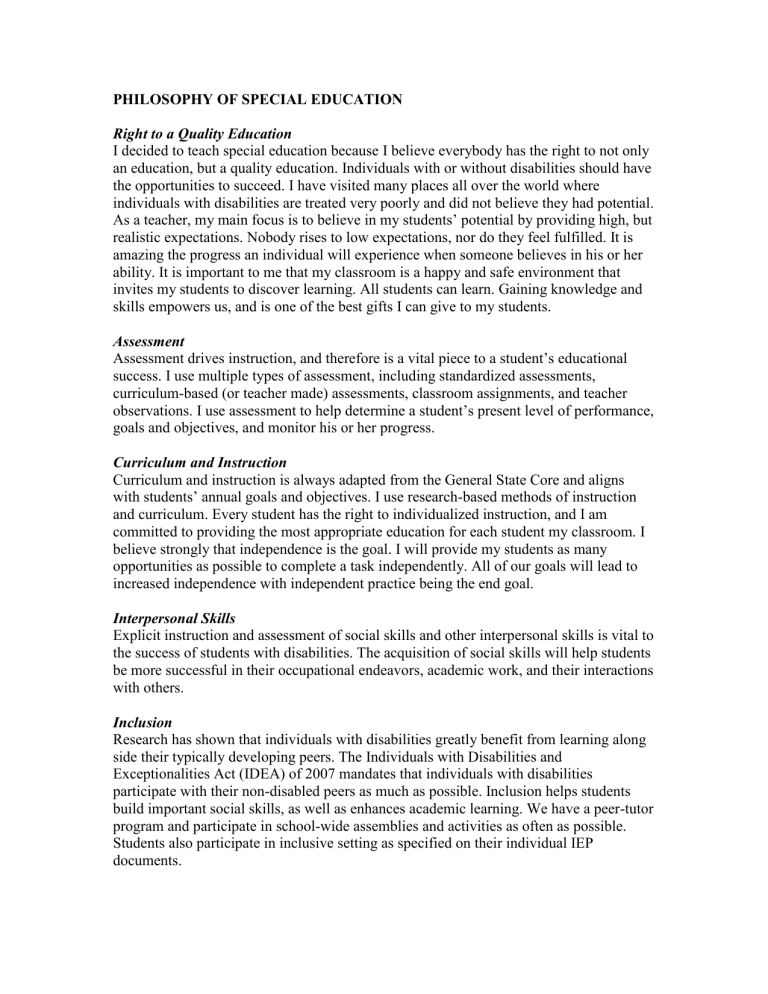
PHILOSOPHY OF SPECIAL EDUCATION
Right to a Quality Education
I decided to teach special education because I believe everybody has the right to not only an education, but a quality education. Individuals with or without disabilities should have the opportunities to succeed. I have visited many places all over the world where individuals with disabilities are treated very poorly and did not believe they had potential.
As a teacher, my main focus is to believe in my students’ potential by providing high, but realistic expectations. Nobody rises to low expectations, nor do they feel fulfilled. It is amazing the progress an individual will experience when someone believes in his or her ability. It is important to me that my classroom is a happy and safe environment that invites my students to discover learning. All students can learn. Gaining knowledge and skills empowers us, and is one of the best gifts I can give to my students.
Assessment
Assessment drives instruction, and therefore is a vital piece to a student’s educational success. I use multiple types of assessment, including standardized assessments, curriculum-based (or teacher made) assessments, classroom assignments, and teacher observations. I use assessment to help determine a student’s present level of performance, goals and objectives, and monitor his or her progress.
Curriculum and Instruction
Curriculum and instruction is always adapted from the General State Core and aligns with students’ annual goals and objectives. I use research-based methods of instruction and curriculum. Every student has the right to individualized instruction, and I am committed to providing the most appropriate education for each student my classroom. I believe strongly that independence is the goal. I will provide my students as many opportunities as possible to complete a task independently. All of our goals will lead to increased independence with independent practice being the end goal.
Interpersonal Skills
Explicit instruction and assessment of social skills and other interpersonal skills is vital to the success of students with disabilities. The acquisition of social skills will help students be more successful in their occupational endeavors, academic work, and their interactions with others.
Inclusion
Research has shown that individuals with disabilities greatly benefit from learning along side their typically developing peers. The Individuals with Disabilities and
Exceptionalities Act (IDEA) of 2007 mandates that individuals with disabilities participate with their non-disabled peers as much as possible. Inclusion helps students build important social skills, as well as enhances academic learning. We have a peer-tutor program and participate in school-wide assemblies and activities as often as possible.
Students also participate in inclusive setting as specified on their individual IEP documents.
Communication
Communication is essential to a person’s progress, success, and happiness. We all communicate millions of things daily, whether it be chatting with a friend or asking where the restroom is at a restaurant. Because communication is such a large part of our lives, I strongly believe that EVERY individual needs to have a way of communicating his or her needs and wants. EVERY student in my classroom will be assessed and through collaboration with the parents, myself and other professionals, we will find the most appropriate method of communication for him or her. Some of these options may be speech therapy, Picture Communication Symbols, switches, sign language, or a alternative or augmentative communication device.
Linguistically and culturally diverse students
I believe every student has something unique he or she can share to enhance the class. I personally value all cultures and consider my class fortunate to have students from a variety of different backgrounds. We fully respect and accept ALL students and welcome their diversity. Accommodations will be made on assessments according to the student’s cultural or racial background. ALL documents will be translated into the native language of the student’s family. I speak Spanish fluently and if another language is spoken, I have several resources available to meet the needs of the student and family. IEP documents will be culturally responsive. Also, in my class, students are welcome to share their interests and cultural background.
Collaboration
Positive collaboration between parents, teachers, administrators and other professionals creates the best education for a student. I believe that each member of the team can offer valuable insights that will enhance the rest of the team understanding and the overall education of the student. I am committed to involving all the essential team members in the education of the students. I also believe school-home correspondence is vital to the optimal success of the student. Daily correspondence through take-home notes is a great way to connect the home and school environments. Also I strongly believe that the positive should be shared. Positive correspondence should always out weigh negative correspondence! Parents and professionals are always welcome and are encouraged to share their special talents with the students.
Classroom Management
A positive environment is built by simple, observable and measurable rules that are reinforced by using praise. This structure is especially important in teaching students with disabilities. As the saying says, “you draw more flies with honey than vinegar,” so it is with teaching. It is important to accentuate the positive. I use several strategies found in the Least Restrictive Behavior Interventions (LRBI) manual. I am a strong believer in using preventative strategies, meaning methods to prevent inappropriate behavior from happening. Some of the strategies I implement are a token economy, positive praise, a structured daily schedule, and clear rules and consequences. The use of a token economy
(rewards earning system) and praise can be very motivating to students. Students like to be able to work for a simple reward, just as adults work for a paycheck or other benefits.
The classroom should be an inviting, safe, and enjoyable place to be. This type of atmosphere is generated by a sincere love of teaching and of the children, as well as clear expectations and positive reinforcement of good behavio
For severe behaviors, action will be taken according to the LRBI manual and the student’s current behavior plan. I will contact parents as needed to better meet each student’s needs. Please contact me with any behavior concerns.


